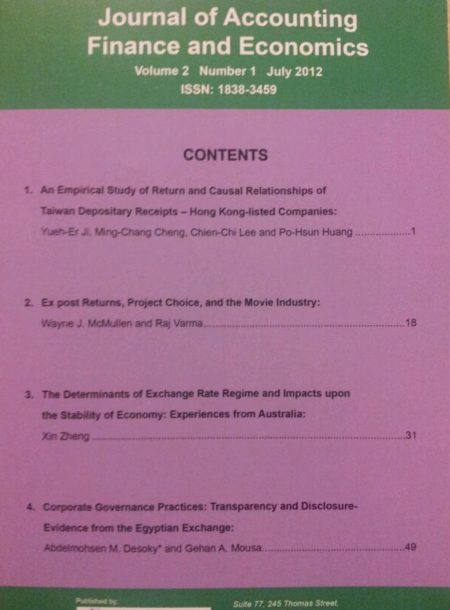Journal of Accounting, Finance and Economics
Vol. 7. No. 1., September 2017, Pages: 27 – 41
Relationship between Government Expenditure and National Income: The Case of Bangladesh
Sakib B. Amin and Fatema Tul Jannat
Public expenditure is considered as an integral part of economic growth. Comprehending the link between public expenditure and economic growth has created some arguments among researchers at both empirical and theoretical levels. However, to the best of our knowledge there is no paper till now to address the issue whether government expenditure has increased national income or national income has increased government expenditure in Bangladesh. Hence, the main purpose of conducting this paper is to examine the causal relationship between government expenditure and national income in Bangladesh. In order to inscribe this particular matter, in this paper, annual data from the time period, 1980-2014 has been used up, along with Augmented Dickey-Fuller (ADF) Unit Root Test for the variables, Johansen Co-Integration and then, Granger Causality Test. Based on the results obtained from the above mentioned tests, no causal relationship has been found between the variables of government expenditure and national income which supports the Wagner’s Law. This has important policy implications, as it suggests that national income does not seem to harm public expenditure in Bangladesh

